Is This a Midlife Crisis or Am I Just Losing My Mind? (Spoiler: It's Neither)
You know that feeling when you wake up one Tuesday morning, stare at your reflection while brushing your teeth, and think, "Wait... who is this person, and when did she get so tired?"
Welcome to midlife, my friend. Population: all of us eventually.
If you're in your late 30s or 40s and feeling like your life is suddenly too small for your soul, you're not alone. And no, you're not broken. You're actually right on schedule for one of the most profound transformations of your life. The good news? This isn't a crisis—it's an awakening. The better news? You get to decide what happens next.
What's Really Happening Here?
Let's get real for a minute. You spent the first half of your life doing exactly what you were "supposed" to do. You got the education, built the career, maybe started the family, checked the boxes. You became really good at being... well, whoever everyone else needed you to be.
And now? Now something inside you is staging a full-blown rebellion.
Carl Jung, the famous Swiss psychiatrist (who had his own spectacular midlife unraveling in his early 40s, by the way—he literally withdrew from his university position to figure himself out), had this to say: "Midlife is the time to let go of an overdominant ego and to contemplate the deeper significance of human existence."
Quick translation: Your "ego" is basically the version of yourself you show the world—the mask you wear, the roles you play. It's time to let go of who you've been pretending to be and start discovering what actually matters to you.
Jung also wrote something that perfectly captures this transition: "But we cannot live the afternoon of life according to the program of life's morning, for what was great in the morning will be little at evening and what in the morning was true, at evening will have become a lie."
In other words, the rulebook that got you here isn't going to get you where you need to go next. And that's not just okay—it's actually the whole point.
Why Does This Feel So Uncomfortable?
Here's what's really going on: The first half of life is about building a strong ego (that public-facing self) and establishing who we are in the world. But in doing so, we slowly lose touch with the rest of our psyche—the deeper, fuller version of who we really are beneath all those roles and responsibilities. We become really good at being mother, wife, employee, daughter, friend—but somewhere along the way, you got lost in the shuffle.
That uncomfortable, fidgety, "why am I doing this?" feeling? That's not a breakdown. That's your soul asking questions. That's an unraveling—a time when you feel a desperate pull to live the life you want to live, not the one you're "supposed" to live.
It might show up as:
Suddenly questioning your career path (even though you've invested 15+ years in it)
Feeling disconnected from relationships that used to feel comfortable
A nagging sense that there's more to life than what you're currently experiencing
Restlessness that no amount of Netflix or wine can quiet
Looking at your perfectly acceptable life and thinking, "Is this it?"
If you're nodding along to any of these, congratulations—you're not having a breakdown. You're having a breakthrough.
The Second Half of Life Isn't About Acquiring—It's About Becoming
Here's where it gets exciting (I promise). Jung believed that "Life really does begin at 40. Up until then you are just doing research." He thought the first forty years were a preparation period for becoming our true selves.
Think about it: You've spent decades gathering data, learning what works and what doesn't, figuring out what lights you up and what drains you dry. You've made the mistakes. You've learned the lessons. You've collected all the evidence.
Now comes the real work: The second half of life is less about acquiring things and knowledge, and more about finding meaning. It's about asking yourself: What does my soul actually need? Who am I when I'm not playing all these roles? What brings me alive?
These aren't comfortable questions. But they're the right ones.
What If I Don't Want to Cut My Hair Short and Move to Portugal?
Good news! You don't have to. (Though if Portugal calls to you, by all means, answer.)
This transition doesn't have to look dramatic. You don't need to blow up your life, dye your hair purple (though again, no judgment if you do), or make any grand gestures you'll regret when your credit card bill arrives.
What you do need to do is listen. Really listen to that voice inside you that's been trying to get your attention.
Jung wrote about the importance of facing this period consciously: "Wholly unprepared, we embark upon the second half of life. Or are there perhaps colleges for forty-year-olds which prepare them for their coming life and its demands?"
He's right—there's no manual for this. But that doesn't mean you have to figure it out alone.
The Path Forward: From Crisis to Clarity
Here's what actually helps during this transition:
Give yourself permission to change. The person you were at 25 got you here. The person you're becoming will get you where you need to go. Both are valid. Both are you.
Stop apologizing for wanting more. More meaning. More joy. More authenticity. More you. This isn't selfish—it's essential.
Get curious instead of critical. Instead of judging yourself for feeling unsettled, ask: What is this discomfort trying to tell me? What am I being called toward?
Find support. This transformation is profound work, and you don't have to do it alone. In fact, you'll get there faster—and with more grace—if you have someone in your corner who understands the territory.
Your Soul Is Calling—Will You Answer?
Here's the truth: You're standing at one of the most important crossroads of your life. You can either numb this feeling, ignore it, push it down with busyness and obligations and distractions... or you can lean in and see what your soul is trying to tell you.
This isn't about having all the answers right now. It's about being brave enough to ask the questions. It's about trusting that the restlessness you're feeling isn't a sign that something's wrong with you—it's a sign that something's finally ready to be right.
You've spent the first half of your life becoming who you thought you should be. What if the second half is about becoming who you actually are?
Ready to Turn Your Midlife "Crisis" Into Your Most Powerful Chapter Yet?
If you're reading this and thinking, "Yes, this is exactly what I'm going through, and I need help figuring out what comes next," I see you. I hear you. And I'm here to help.
This transition you're in? It's not a crisis to be managed—it's an invitation to be answered. And you don't have to answer it alone.
I invite you to book a complimentary Path Forward Call with me. In this no-pressure conversation, we'll:
Explore what's really happening beneath the surface of your restlessness
Identify the patterns and roles that are keeping you stuck
Create clarity around what your soul is actually calling you toward
Map out concrete next steps for your journey forward
You've done the research. You've gathered the data. Now it's time to design the second half of your life on your terms.
Book Your Path Forward Call Today
Because the woman you're becoming deserves a guide who understands the territory. And honey, the view from here? It's spectacular.
Remember: Jung also experienced his own profound midlife transformation. If the father of analytical psychology needed to face his unconscious and rebuild his life at 40, you're in excellent company. Let's do this—together.


